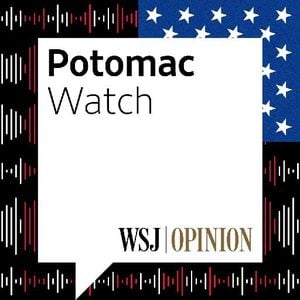Taiwan, at the crossroads of heightened geopolitical tension, finds itself on the frontlines of cyber warfare as China's influence looms ever larger. Following recent reports, Taiwan’s National Security Bureau (NSB) has issued alarming warnings about China's enhanced cyberwarfare capabilities. This includes the integration of artificial intelligence (AI) technology by the Chinese government, aimed at not only breaching networks but also manipulating information to sway public opinion and disrupt societal cohesion.
According to the NSB, the Chinese Communist Party (CCP) has seamlessly combined its military and civilian AI resources, significantly bolstering its cyberwarfare strategies against Taiwan. The bureau directly affirmed this synthesis aims at launching opportunistic cyberattacks, sowing disinformation, and targeting the island's key infrastructures. This concerted effort points to China's broader agenda of undermining Taiwan's sovereignty and independence.
Recent military exercises around Taiwan have underscored the urgency of these threats. On November 3, Taiwan’s defense ministry reported the sighting of 35 Chinese military aircraft conducting operations near the island, including advanced fighter jets and bombers. Should these activities escalate, the stakes could increase, challenging Taiwan's cybersecurity frameworks and prompting significant military readiness responses.
The NSB elaborated on how this sophisticated AI could potentially be weaponized, highlighting its ability to discover vulnerabilities within software and hardware systems. This includes generating mutated computer viruses and enhancing attacks' severity, particularly denial-of-service attacks, which can overwhelm networks, rendering them unusable.
"Through AI, the intensity of denial-of-service attacks could be enhanced, and botnets can be more effectively manipulated, making cyberattacks more automatic, random, and hidden," the NSB stated. This high-tech approach suggests the CCP is gearing up for conflicts on multiple fronts, seamlessly transitioning between physical military might and cyber dominance.
Disinformation campaigns are also on the rise, with deepfake technology being employed to create convincing fake videos or narratives aimed at misinforming the public. The NSB warned, “AI can manufacture massive amounts of deepfake videos and disinformation based on scripted information, which can be spread through fake online accounts and bots.” Experts believe this will only complicate efforts to uphold democratic processes within Taiwan.
China's ambitions don't stop at mere cyber espionage; they extend to influencing Taiwan's upcoming elections. The aim is to create conditions favorable to Beijing’s claims over Taiwan. The Taiwan Association of University Professors' deputy chairman, Chen Li-fu, pointed out this alarming trend, noting, "If China uses its military forces to take over Taiwan, wars would be launched on physical battlegrounds and in cyberspace simultaneously." This dual approach could redefine modern warfare as both nations wrestle for control.
Adding to the intensity of the situation, China’s military exercises around Taiwan have occurred more than ten times since 2018, signaling increased hostility. Reports indicate caution within Taiwan’s defense sectors, emphasizing the need for unified digital defense strategies. The NSB plans to collaborate with private sectors, leveraging international partnerships to build resilience against these cyber threats. "We would form a digital united front by sharing intelligence with our international allies, including the types of cyberattacks used by China and other organizations," the NSB declared.
This collaborative effort is particularly important for Taiwan to effectively counteract the sophisticated operational and technological capabilities presented by China. The Ministry of Digital Affairs also elaborated, stating the urgency of enhancing media reading skills and technological knowledge among the populace, to help them discern fact from potent fabrications.
Adding another layer to this Misinformation and Cybersecurity conundrum is Canada’s increasing engagement with Taiwan. Canada has recently stationed a cyber attaché at its unofficial embassy, reflecting deepening collaboration against China's widespread computer hacking and disinformation campaigns, which pose substantial risks to both nations.
Reports from Canadian officials underline China as the primary cyber threat. “For both Canada and Taiwan, China is the No. 1 cyber-attack hazard in terms of scope and resources,” evidencing shared concerns between the two jurisdictions. Canada has been cautious due to the delicate nature of its unofficial ties with Taiwan, but this stance is shifting.
Significantly, the Canadian government's communications security establishment acknowledges similar threats from Beijing, identifying China's expansive cyber activities as major hindrances to national security. This growing relationship encapsulates not just the sharing of cybersecurity intelligence but reflects broader geopolitical alignments as countries grapple with China's aggressive strategies.
Despite the lack of formal diplomatic relations, cooperation is blossoming. Ottawa has extended support to Taiwan's security buildup, with military exports from Canada reaching record levels last year. This burgeoning alliance emphasizes mutual interests aligned against Beijing’s assertive posture.
Harry Tseng, Taiwan’s top envoy to Canada, noted the necessity for lessons to be learned from Taiwan’s resilience against persistent disinformation attacks. Canadian officials are increasingly recognizing the need to bolster ties silently, as they push back against perceived threats from China, marking potentially pivotal changes within the geopolitical chessboard.
This newfound mutuality, focusing on cybersecurity collaboration, signifies important adjustments by Canada to its One-China policy, traditionally adhering to diplomatic caution. Fostering closeness with Taiwan reflects not only practical responses to immediate threats but also the acknowledgment of Taiwan's geopolitical significance.
Former national-security advisor Richard Fadden highlighted the shifting perspectives within Canadian political circles, asserting, “There’s more flexibility” within Canada's One-China policy, hinting at possible updates responding to China's growing aggressiveness toward Taiwan.
Further affirming Taiwan’s strategic digitization endeavors, Canadian officials report on increasing interchanges of cybersecurity knowledge aimed at detecting and mitigating disinformation tactics. Both countries are recognizing the value of staying at the forefront of cyber warfare preparation, especially as disinformation becomes more sophisticated and pervasive.
These developments indicate the urgent need for Taiwan to reinforce its cybersecurity architecture and maintain open communications with its citizenry. Official channels must be transparent during potential crises to circulate accurate information, countering the disinformation tactics likely to be deployed.
While Taiwan's borders are physical, the challenges it faces stretch well beyond them—encompassing the digital realms where control is exerted just as fiercely. This reality demands vigilance, agility, and partnerships to forge resilience against overlapping threats, evident from China's burgeoning capabilities. The future of Taiwan may, to some extent, hinge not solely on military might, but on how well it can navigate the complex digital battlefield looming on its horizon.



